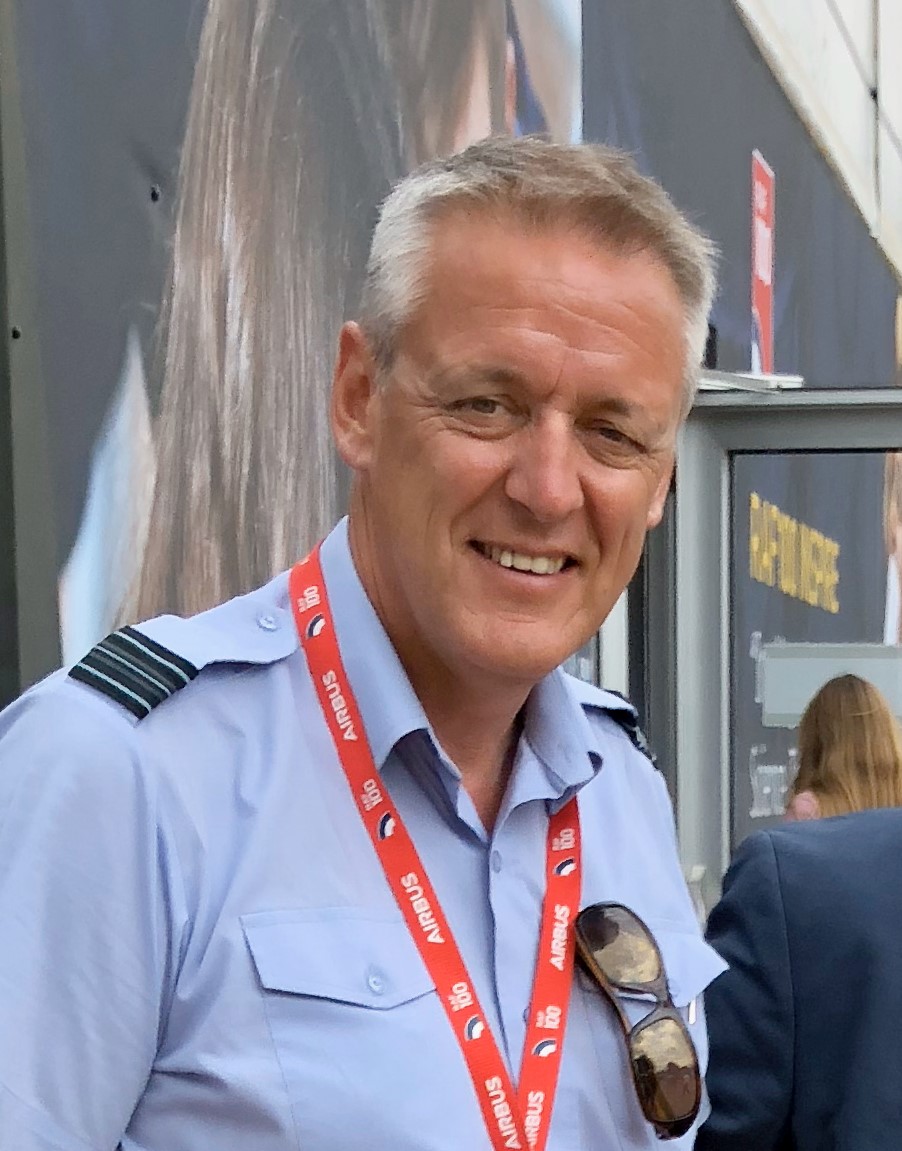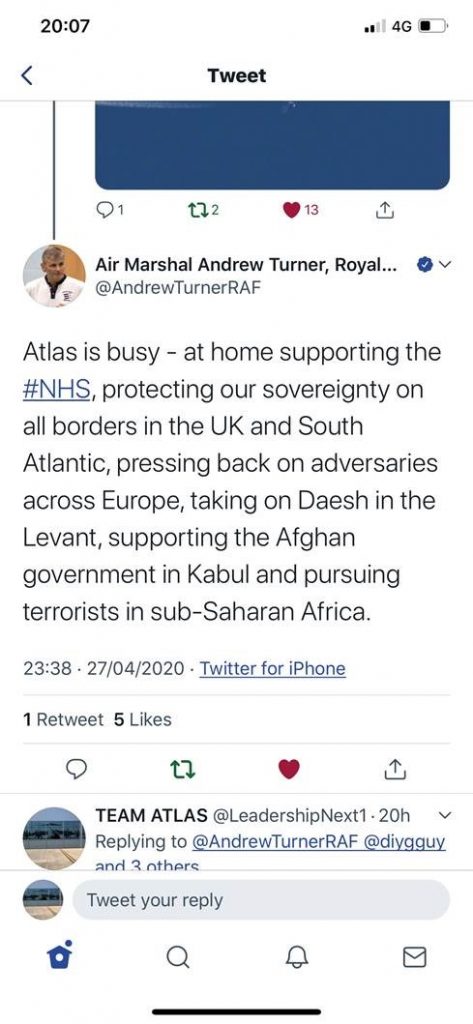Voice of our customers – Interview with Squadron Leader Jon Pullen, UK Team Atlas of the Royal Air Force
since June 5th, 2020What has been RAF’s A400M experience of dealing with this unprecedented Coronavirus pandemic crisis?

It is true to say that few forecasters foresaw the devastation to home and working lives that we have all faced over the past three months as we have come to learn to live in our new COVID-19 reality. And while this was just as true for the UK as for our European neighbours when our Prime Minister announced we were all to ‘Stay at Home’ from 23 March, we did have the benefit of having seen for the previous two weeks how Spain and Italy in particular, had led the European reaction to the crisis.
This gave us a short period to look at our Business Continuity Planning and to focus on the A400M’s core role while protecting our Team.
The UK Team ATLAS response was swift, clear, well communicated and focused on two key areas:
Firstly, the personal safety and health of personnel and their families. Like most of our colleagues from other Nations, this relied on personnel working from home if possible, splitting key personnel into separate locations, adapting shift patterns to avoid personnel meeting, and the adaption of the work place to minimise infections.
And secondly, maintaining Defence capability. From a Defence Tasking perspective, the intent was to protect critical sorties by working closely together with our Tasking Authority to ensure that when the aircraft was called upon it would be available. At the heart of this effort was our National Standby Aircraft that has been on three-hour Standby for the duration of the crisis. Notable tasking included:
– Medical Evacuations undertaken from the Orkney and Shetland Islands, Northern Ireland as well as the British Overseas Territory of Turks & Caicos Islands
– Delivery of essential equipment to build a Medical oxygen generation plant in the Falkland Islands in the South Atlantic.
– Delivery of Personal Protective Equipment (PPE) to the remote Islands of Ascension and St Helena.
– Collection of more than 175,000 items of PPE to the UK.
This was as well as maintaining the aircrafts routine core tasking, altogether well summarised by one of our Senior Commander’s, Air Marshall Andrew Turner:

How would you describe the support provided by EPI & PCs to support RAF operations during this crisis period?
The results of this communal effort have been exceptional with 100% of all tasking being achieved. The TP400 has played it’s role in this success, especially through the modifications to the Propeller Gear Box and Combustion Chamber where we are starting to see timely improvements in Engine Availability. Additionally, the Engines impressive Power and efficiency have enabled tasking to the furthest Southern reaches of the South Atlantic as well as operating from remote Airfields such as the Ascension Islands, where due to the Aircraft’s key Tactical mission Capabilities, the ATLAS is the only platform that can currently land on the damaged Ascension Island Runway.
But to achieve all of this takes Teamwork and whilst the front-line focus has rightly been on the RAF Brize Norton ‘Team Atlas’, without our other supporting contractors, especially the UK’s Engines Community, this outstanding performance would not have been possible. Both Rolls-Royce and the EuroProp International Teams have risen to the challenge: whether it was through the proactive engagement to identify and expedite critical engine spares at the start of the Crisis, the deployment at short notice of a Rolls-Royce Boroscope Team to retrieve material from inside an Engine or the swift response from the EPI Tech Services Team to provide a Tech Variance to enable the Engine to remain on Wing. The fact that this service has continued to be delivered despite EPI & Rolls-Royce facing the same constraints as the rest of the community and all as part of routine Business Communication is pleasing and reflects well on how far the UK Engine Community has come over the past 12 months.
Our challenge now is to reflect on the changes we have made over the past 3 months, to understand how we adapted together as a Community to respond to the crisis, how our methods of communication have improved and critically, to continue with the new ways of operating when our reasons for change fade from us. Finally, I am looking forward to when I can once again meet up with my Friends and colleagues from across the community, to perhaps make fun of their WEBEX Camera backdrops (so many Bookshelves), and of course to share a glass of Rioja… though perhaps at a reasonable social distance.
Jon Pullen
Credit: Squadron Leader Jon Pullen, UK Team Atlas

